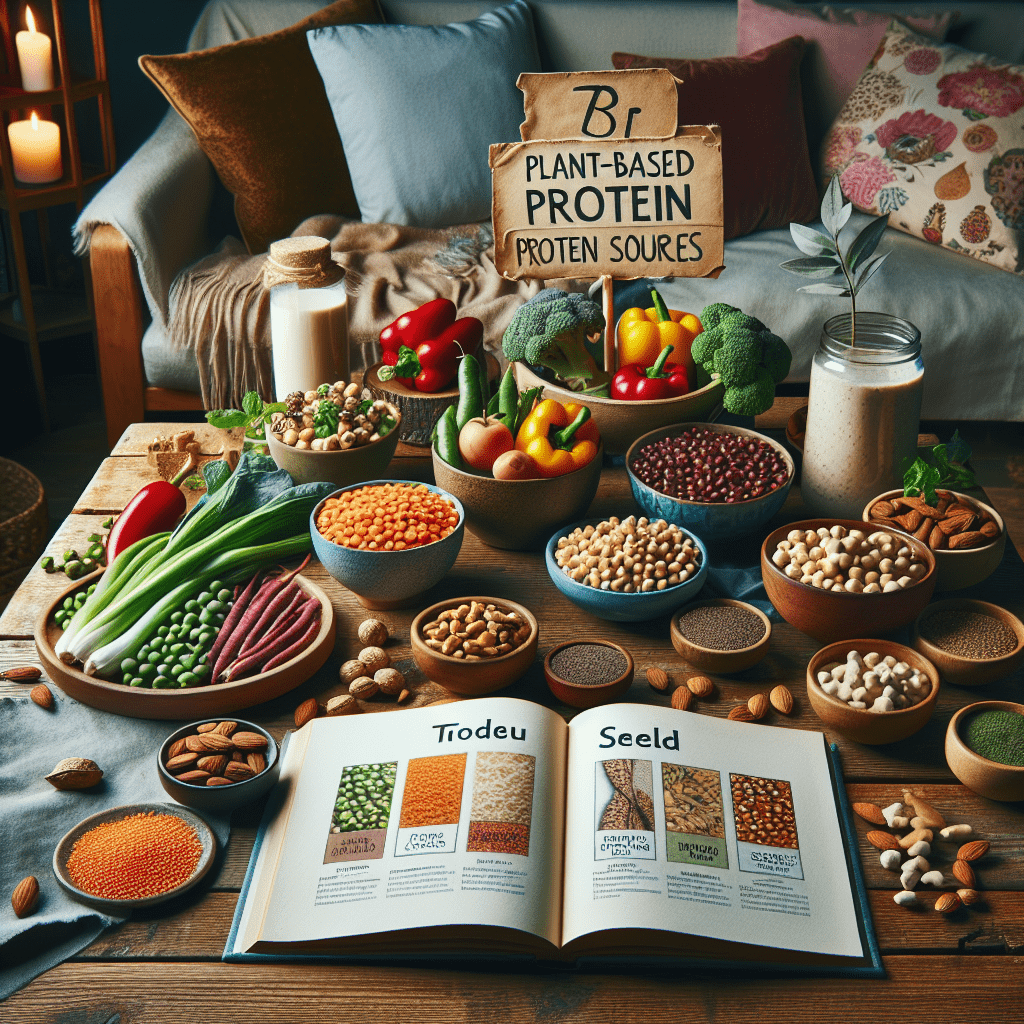[ad_1]
With the growing interest in plant-based diets, there’s a common concern about getting sufficient protein. Protein is a crucial macronutrient necessary for muscle repair, hormone production, and overall health. Fortunately, there are numerous plant-based protein sources that can help you meet your nutritional needs. Here’s a guide to the best plant-based proteins for a balanced diet.
Lentils
Lentils are a powerhouse of nutrition. A cup of cooked lentils provides about 18 grams of protein, along with fiber, iron, and potassium. They can be added to soups, stews, salads, and more.
Chickpeas and Most Beans
Chickpeas, black beans, kidney beans, and others offer around 15 grams of protein per cooked cup. They’re also excellent sources of fiber, iron, and phytonutrients.
Tofu and Tempeh
Made from soybeans, tofu, and tempeh are versatile protein sources that can absorb flavors from other ingredients. A 4-ounce serving of tofu contains 9 grams of protein, while the same serving of tempeh offers around 20 grams.
Quinoa
Quinoa is a complete protein, meaning it contains all nine essential amino acids our bodies need. One cooked cup provides 8 grams of protein, along with fiber, iron, magnesium, and manganese.
Seitan
Seitan, made from wheat gluten, has a meaty texture and is high in protein, with around 25 grams per 3.5 ounces. It’s great for stir-fries, sandwiches, and more, but it’s not suitable for those with gluten sensitivities.
Nuts and Seeds
Almonds, peanuts, chia seeds, flaxseeds, and hemp seeds are nutritious snacks that provide protein, healthy fats, and various vitamins and minerals. They’re easy to incorporate into any diet.
Green Peas
A cup of cooked green peas contains about 9 grams of protein. They’re also rich in vitamins A, C, K, and fiber.
Soy Milk
A great alternative to dairy milk, one cup of soy milk can offer up to 8 grams of protein, making it a good choice for smoothies and cereal.
Key Takeaways
- Plant-based proteins can fulfill daily protein requirements effectively.
- Diverse sources allow for nutritional variety and culinary creativity.
- Including a mix of these protein sources can ensure a balanced intake of other nutrients like fiber, vitamins, and minerals.
Frequently Asked Questions
Can plant-based proteins offer enough amino acids?
Yes, when consuming a varied diet, plant-based proteins can provide all essential amino acids needed by the body.
How much protein do I need per day?
The recommended dietary allowance (RDA) for protein for most adults is 0.8 grams of protein per kilogram of body weight. Athletes or those with specific health conditions may have different requirements and should consult a healthcare provider.
Can I build muscle with plant-based proteins?
Absolutely. Many athletes and bodybuilders maintain muscle mass and strength with a plant-based diet by ensuring they consume adequate amounts of protein and calories.
[ad_2]

Leave a Reply